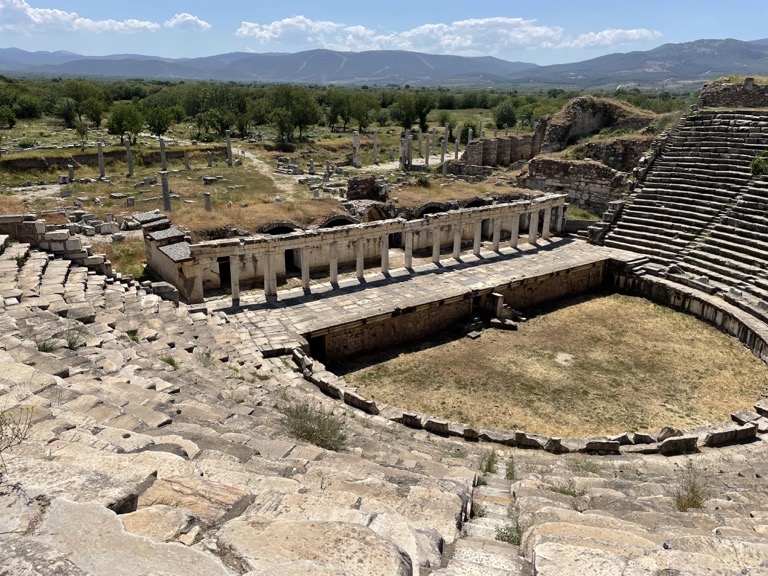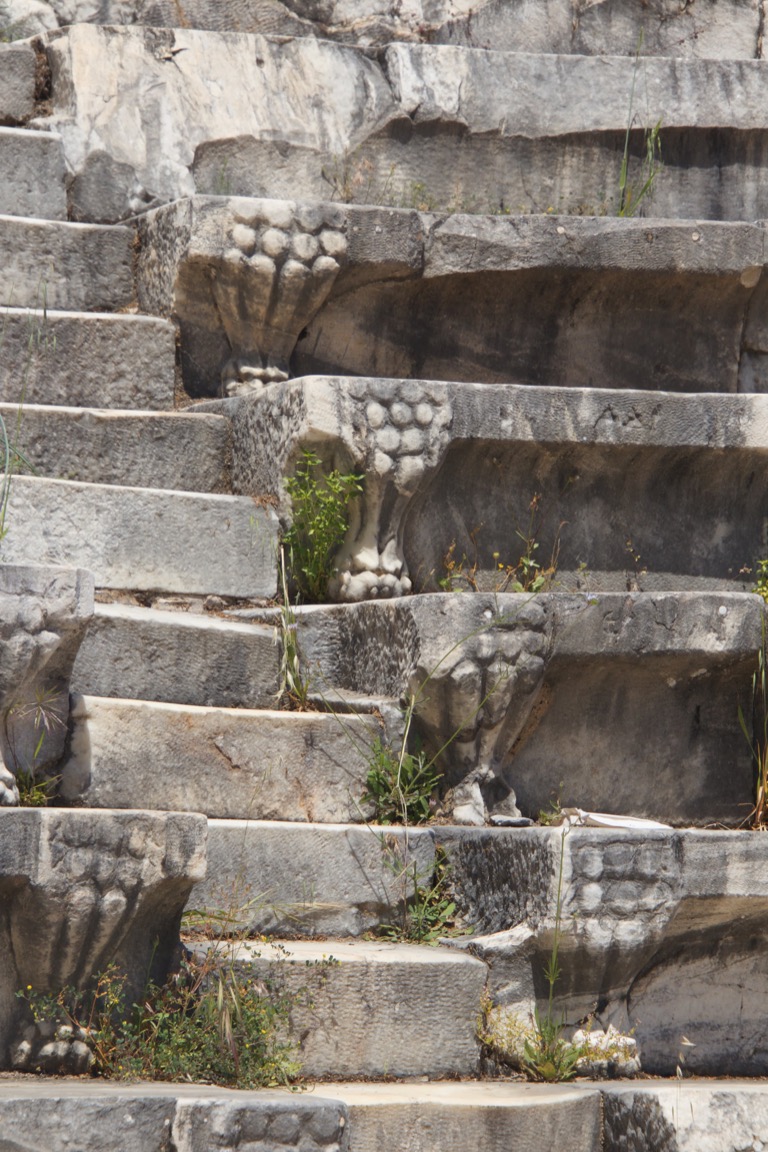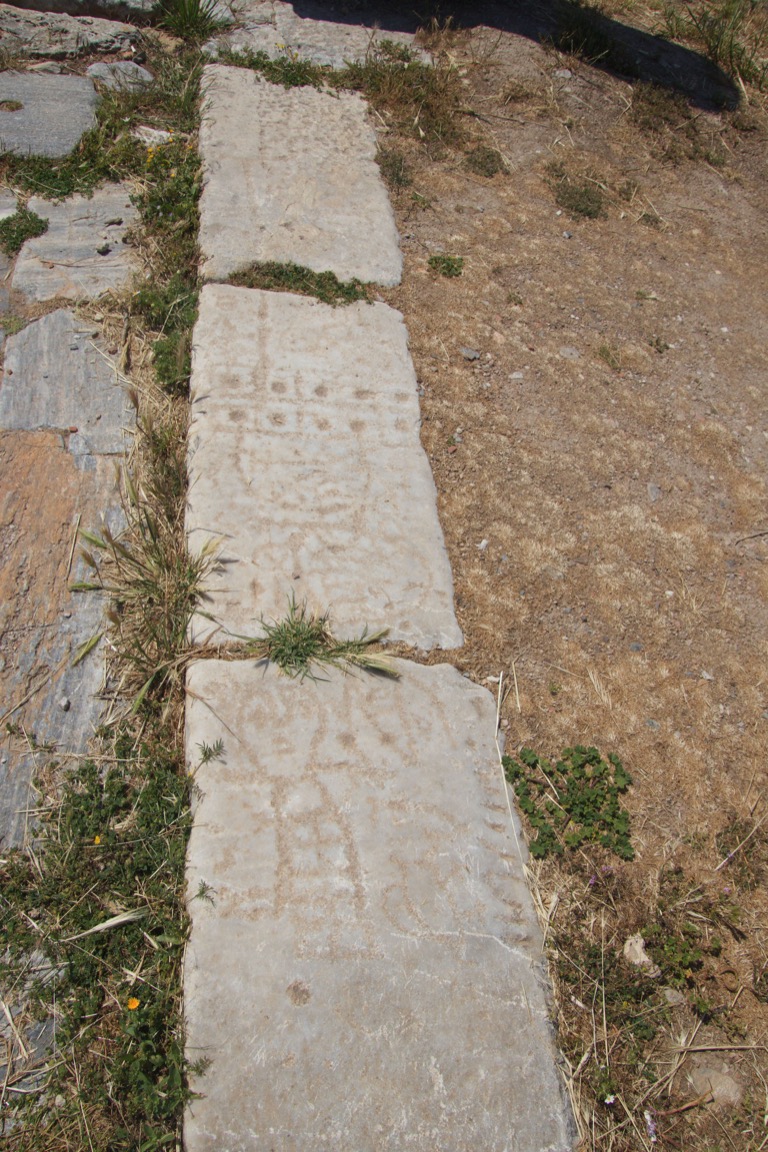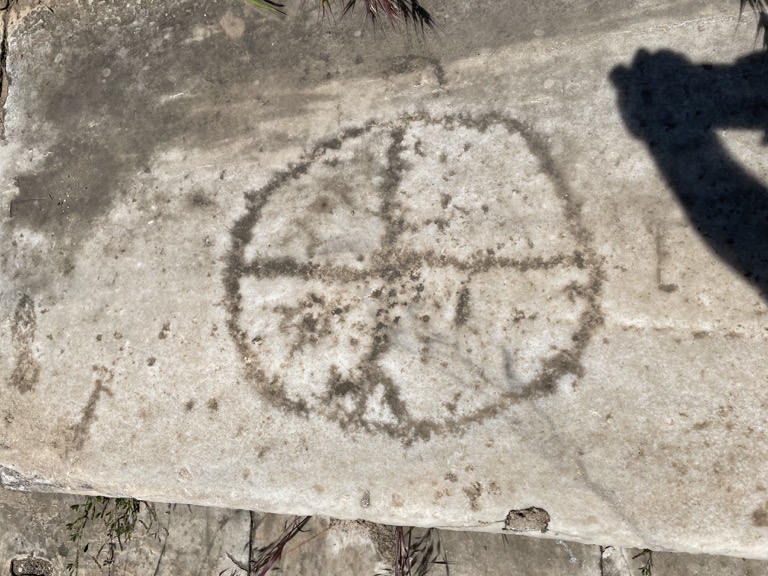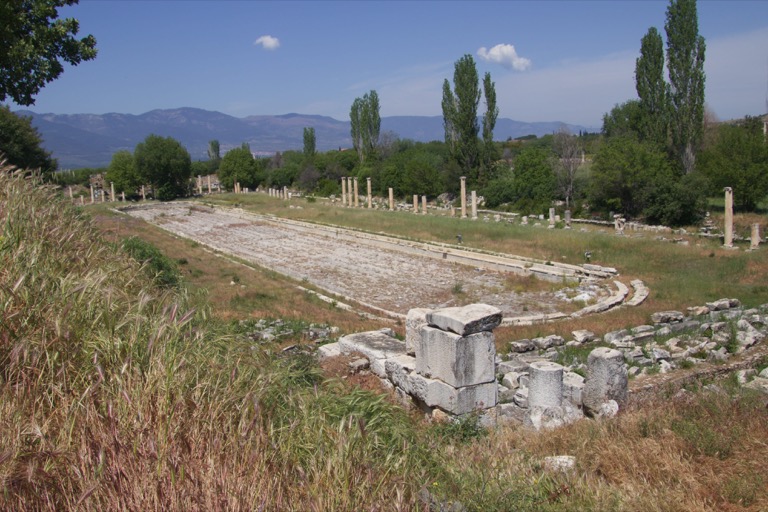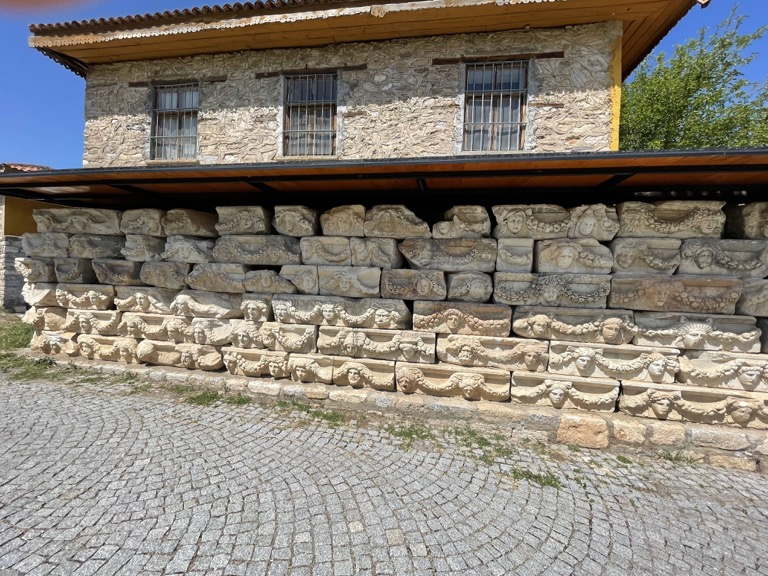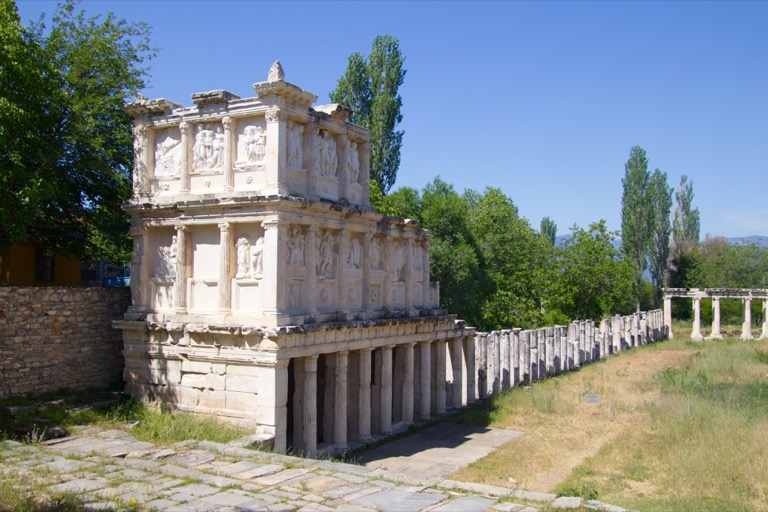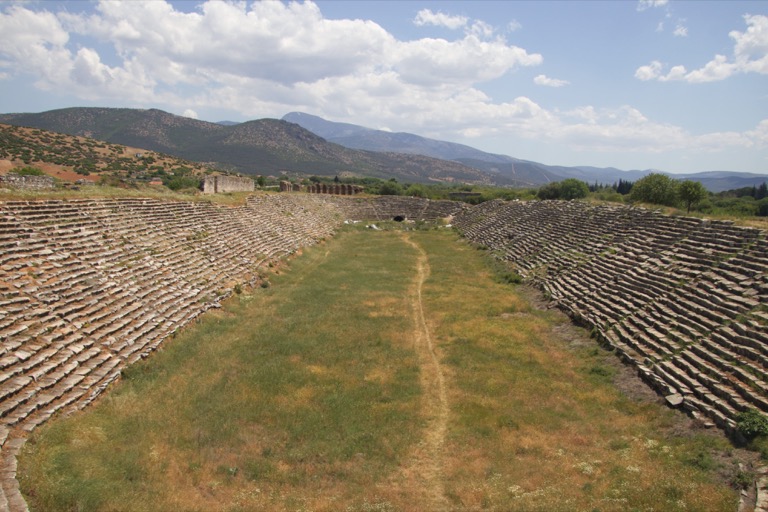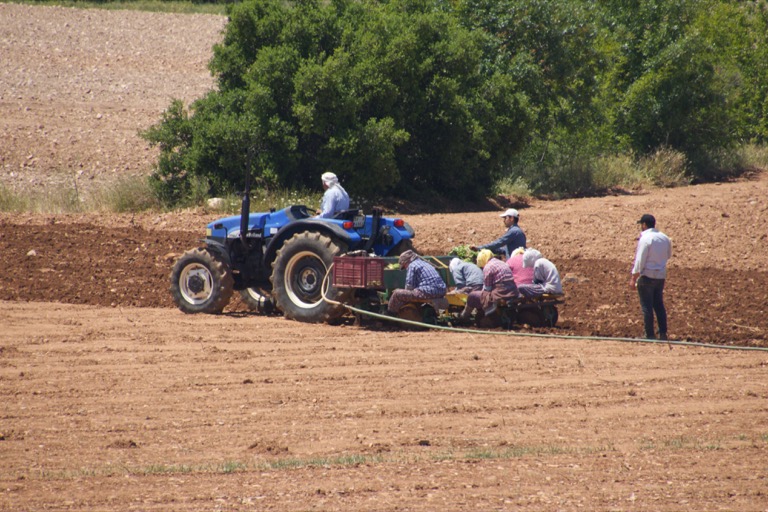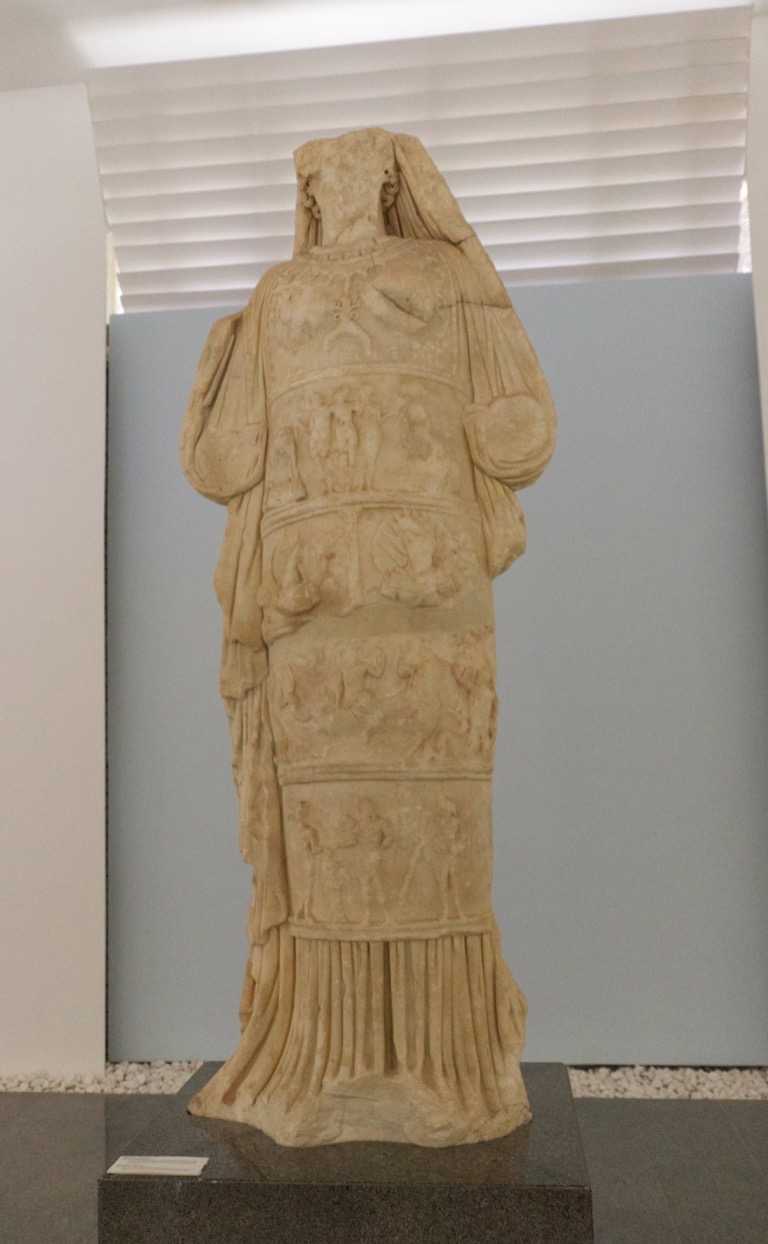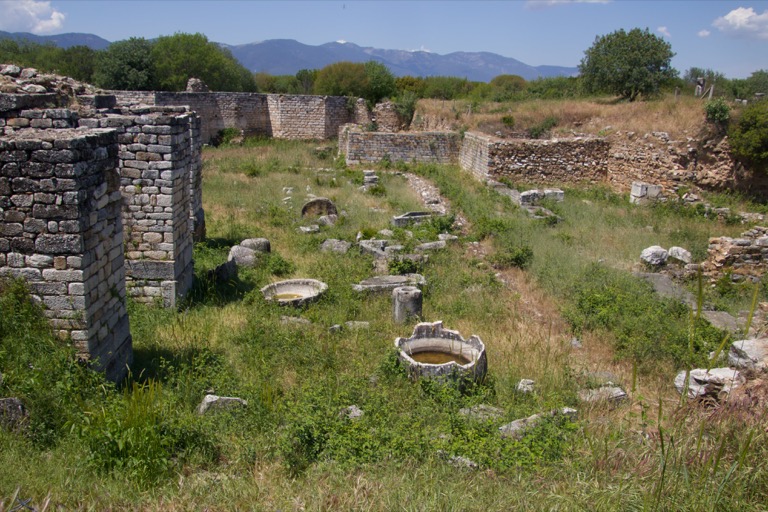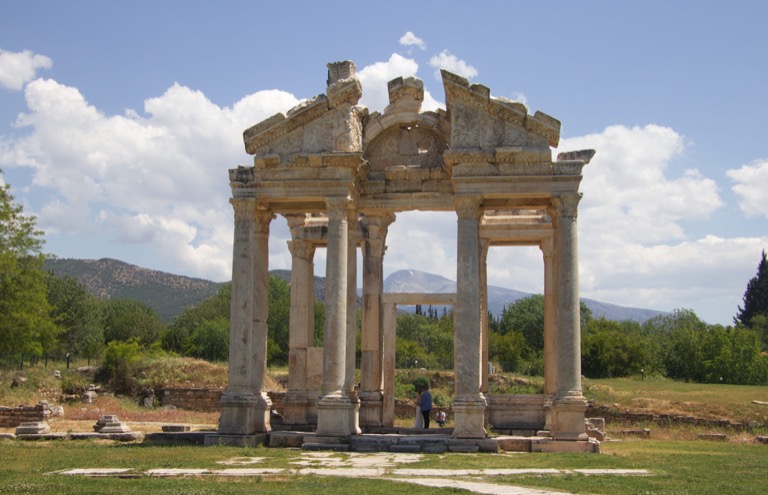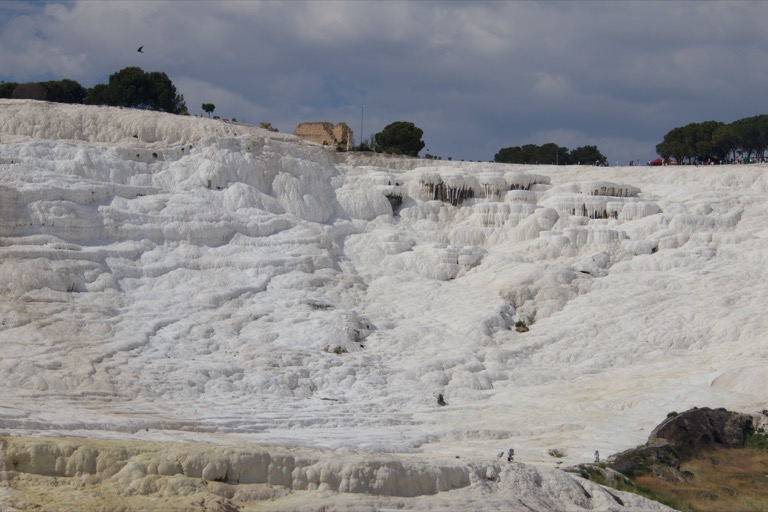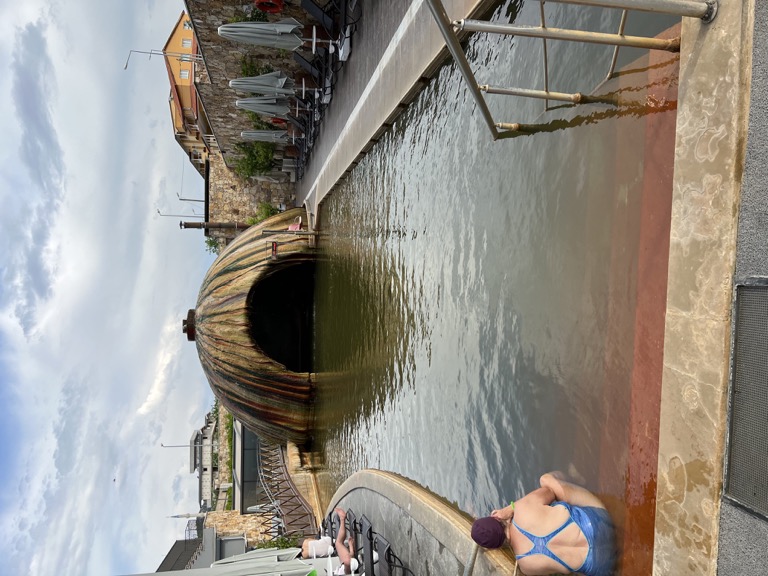on
To Pamukkale
Today we start with a couple hour drive to Aphrodisias which is a UNESCO World Heritage Site.
Aphrodisias was known for its sculptures. In Roman times it was among the top three places to produce the finest sculptures in the ancient world.
It has a theater that could seat 7000 with a now partially reconstructed first story of a three-story stage. The reconstruction used blocks on site.
with lion feet along the steps leading up.
Game boards had been carved in some blocks across one of the entrances to the theater. We don’t know the rules, but it’s speculated they involved dice.
A cross was carved nearby. It might have marked a shop run by a Christian.
The “Place of Palms”, also known as the South Agora, featured a 170 meter (557 ft) long pool in the center with date palms planted along both sides.
Note that there is felt and rocks covering the bottom of the pool to protect it.
The “Place of Palms” had friezes atop the columns with unique faces carved on them. There are hundreds of them, this is just one of three sections.
The Sebasteion was richly decorated with approximately 200 carvings, of which 80 remain in the museum at Aphrodisias.
The stadium is also in great condition. It is enclosed on both ends, and could seat 30,000. It’s 262 m (860 ft) long.
I walked down to the other end of the stadium which is near the edge of the town. I saw farmers planting tobacco in the fields.
The temple of Aphrodite was later enlarged and converted to a church in the 5th century AD. This is looking towards the alter area.
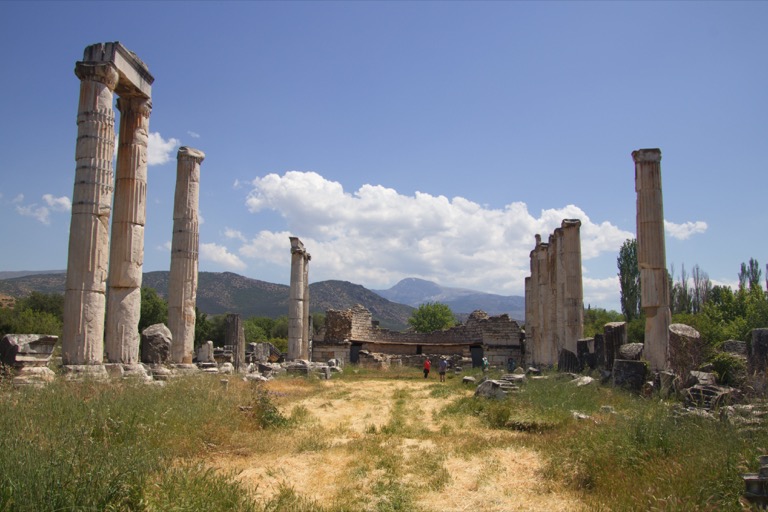
Here is a statue of Aphrodite.
Here is the remains of one of sculpture workshops. Note the broken pieces left laying about.
The tetrapylon has been reconstructed, and was being used for an engagement photo shoot when we were visiting.
After lunch we had another drive to Pamukkale.
We stopped to see the travertine terraces before going to our hotel.
Many of the hotels in the area have the hot mineral water piped into them. The Romans piped the hot water as well, so this has been done for many years. Here is the outdoor pool at our hotel. Note the colored strips on the dome. Those are from the mineral water being discharged at the apex of the dome and running down.
